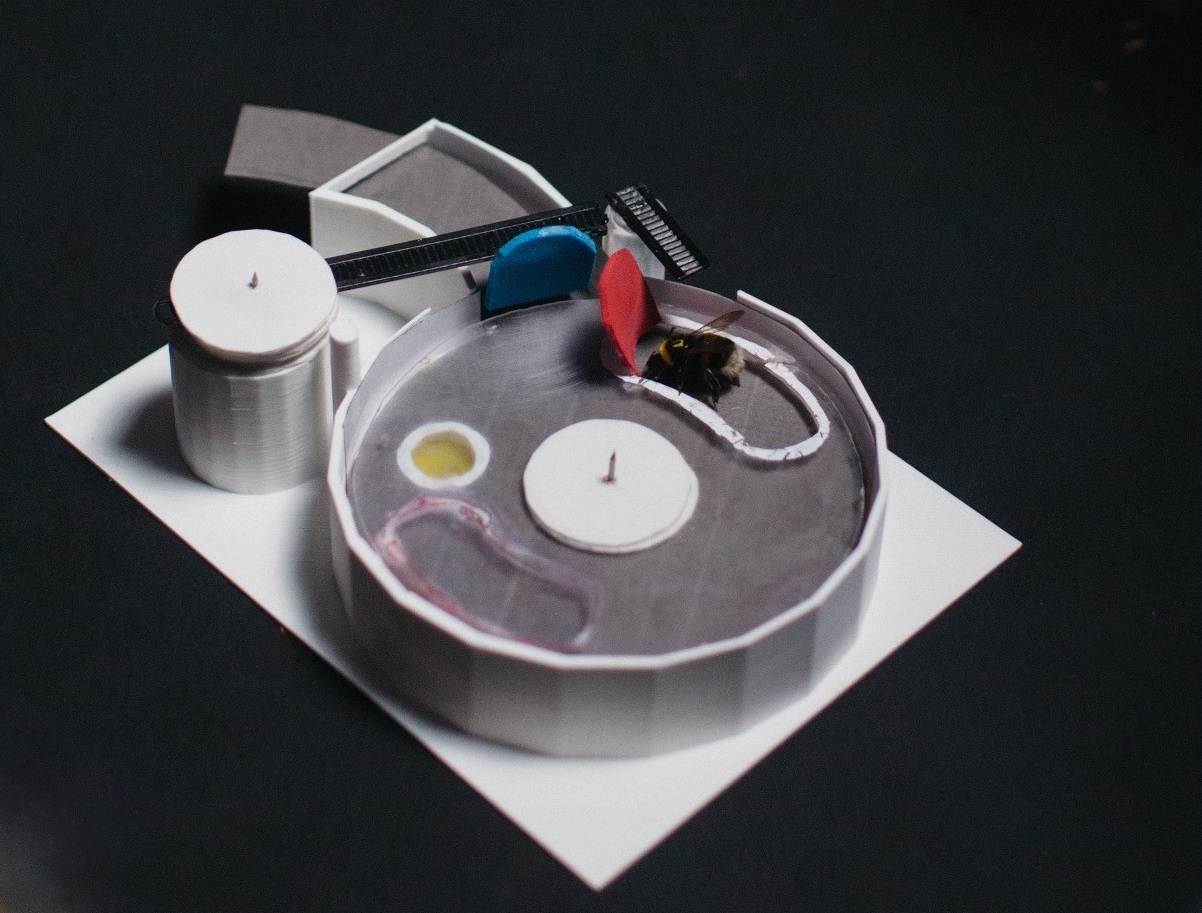Media release
From:
Animal behaviour: Hive mind helps bees solve complex puzzles (N&V) *IMAGES & VIDEO*
Bumblebees can teach others new behaviours too complex for them to learn alone, suggests a Nature paper. In the study, a bee taught to solve a puzzle for a sugary reward can go on to train other bees to complete the task. The findings provide evidence that bees can socially learn some behaviours at a level of complexity previously thought to be unique to humans.
Behaviours that are socially learned and persist over time are referred to as cultures. Increasing evidence suggests that, like human culture, animal culture can be cumulative, with sequential behaviours building on previous ones. Human cumulative culture involves behaviours so complex that they lie beyond the capacity of any individual to independently discover during their lifetime. However, this behaviour has not yet been demonstrated in an invertebrate species.
Bumblebees are social insects shown to be capable of acquiring non-natural behaviours, such as string-pulling and ball-rolling, via social learning in order to gain rewards. Alice Bridges, Lars Chittka and colleagues set up a puzzle box task to investigate whether bumblebees are capable of learning more complex behaviours from others in the colony. They design a two-step puzzle box in which the bees first must move an obstacle to allow a rotating lid to be opened, revealing a sucrose solution reward. Untrained bees failed to solve the puzzle independently through trial and error. Indeed, it took around two days to train demonstrator bees to complete the task, often requiring a reward at the first step. However, untrained bees learned to open the two-step box from these demonstrators without needing a reward after the first step.
The findings provide evidence that bumblebees are capable of social learning and possibly cultural transmission.
Multimedia








 International
International


